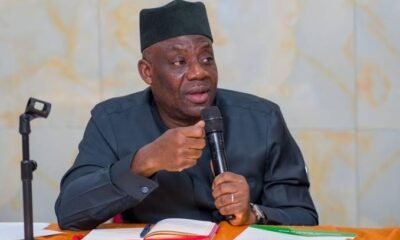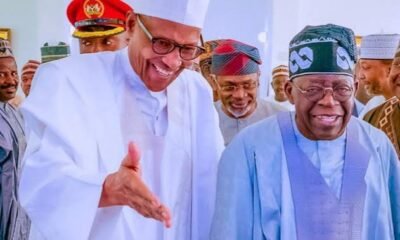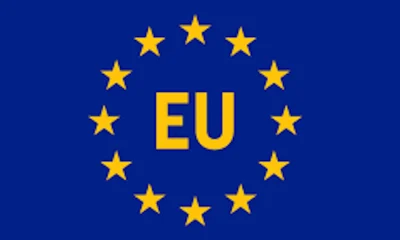Headline
Nigeria Gets New Position In World Bank‘s Debtors List

Nigeria Gets New Position In World Bank‘s Debtors List
Nigeria now has an IDB debt stock of $13 billion since June 30, 2022 to claim number four position on the list of World Bank‘s top debtors.
This is according to the newly released World Bank Fiscal Year 2022 audited financial statements for International Development Association (IDA).
Out of the top 10 IDB borrowers’ list, Nigeria had been rated fifth with $11.7bn IDA debt stock as of June 30, 2021.
As at June 30, 2022, the debt has increased to $13 billion.
The International Financial Institution revealed in its audited financial statements Nigeria has accumulated about $1.3bn IDA debt within a fiscal year, with the country taking over the fourth top debtor position from Vietnam.
This debt is different from the outstanding loan of $486m from the World Bank’s International Bank for Reconstruction and Development.
Other top five countries on the list are said to have slightly reduced their IDA debt stock, except Nigeria.
The report showed that India, which is still the first on the list reduced its IDA debt stock from $22bn in the previous fiscal year to $19.7bn, followed by Bangladesh from $18.1bn to $18bn.
It is followed by Pakistan which cut its debt from $16.4bn to $15.8bn, and lastly, Vietnam, which went down the list to fifth position, from $14.1bn to $12.9bn.
Nigeria has the highest IDA debt in Africa, as the top three IDA borrowers (India, Bangladesh and Pakistan) are from Asia. The World Bank disclosed recently that Nigeria’s debt, which may be considered sustainable for now, is vulnerable and costly.
The bank said, “Nigeria’s debt remains sustainable, albeit vulnerable and costly, especially due to large and growing financing from the Central Bank of Nigeria.”
The Washington-based global financial institution highlighted that Nigeria’s debt was also at risk of becoming unsustainable in the event of macro-fiscal shocks.
The bank further expressed concerns over the nation’s cost of debt servicing, which according to it, disrupted public investments and critical service delivery spending.
Economists have also raised concerns over the rising debt profile of the Federal Government.
The Fiscal Policy Partner and Africa Tax Leader of PwC, Mr Taiwo Oyedele, expressed his agreement with the World Bank on the high cost of debt servicing.
He said, “I agree with the World Bank. Although the debt to GDP ratio is not too high, if you think about the debt service cost to revenue ratio, it is already over 70 per cent. That’s when you know it’s costly.
“Nigeria borrows at double-digit, and even when we borrow in dollars, the rates are very high and then you devalue the naira and the cost of servicing the debt in naira goes up because it is dollar-dominated debt.
“Put all of that together, and you can easily say to yourself that even though our debt to GDP ratio is very low, our cost of borrowing is unsustainable because it is very high, and therefore, make it very costly.”
In one of his publications, a former Deputy Governor of the Central Bank of Nigeria, Kingsley Moghalu also criticised the increasing borrowing tendency of the government, urging the officials to re-consider other ways of generating revenue for the country.
Moghalu said it was also not reasonable to borrow for infrastructural development as the government could expand the public-private partnership options for such development.
-
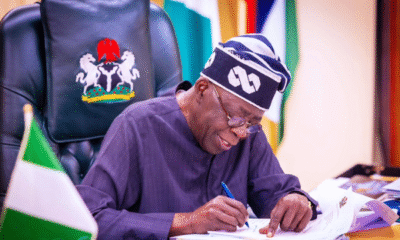
 Headline1 week ago
Headline1 week agoJUST IN: Tinubu Finally Appoints Ambassadors, See Full List
-
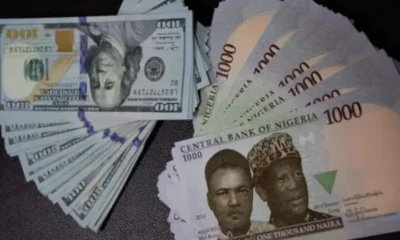
 Brands and Marketing1 week ago
Brands and Marketing1 week agoSee Dollar To Naira Exchange Rate Today, November 28, 2025
-

 Entertainment1 week ago
Entertainment1 week agoBurna Boy’s ‘No Sign Of Weakness’ U.S. Tour Dates Cancelled, See Why
-

 Headline1 week ago
Headline1 week agoCAF Approves 28-Man Squads For 2025 AFCON, See Full List
-

 Headline1 week ago
Headline1 week agoBREAKING: El-Rufai Officially Joins ADC— Reports
-
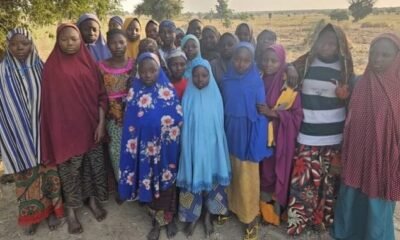
 Headline1 week ago
Headline1 week agoBREAKING: 24 Kebbi Schoolgirls Kidnapped Regain Freedom
-

 Headline1 week ago
Headline1 week agoBREAKING: Islamic Scholar Sheikh Dahiru Is Dead, See Details Of Burial
-
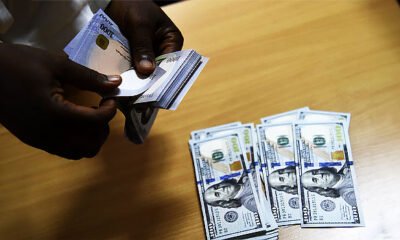
 Brands and Marketing3 days ago
Brands and Marketing3 days agoUPDATED: See Naira To Dollar Exchange Rate Today
-
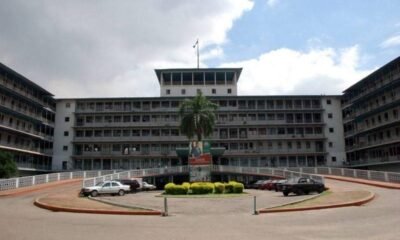
 Headline4 days ago
Headline4 days agoBREAKING: Resident Doctors Resume Duties At UCH After Month-Long Strike
-

 Headline4 days ago
Headline4 days agoBREAKING: Iran Discovers Major New Gold Deposit In Key Mining Site— Reports





